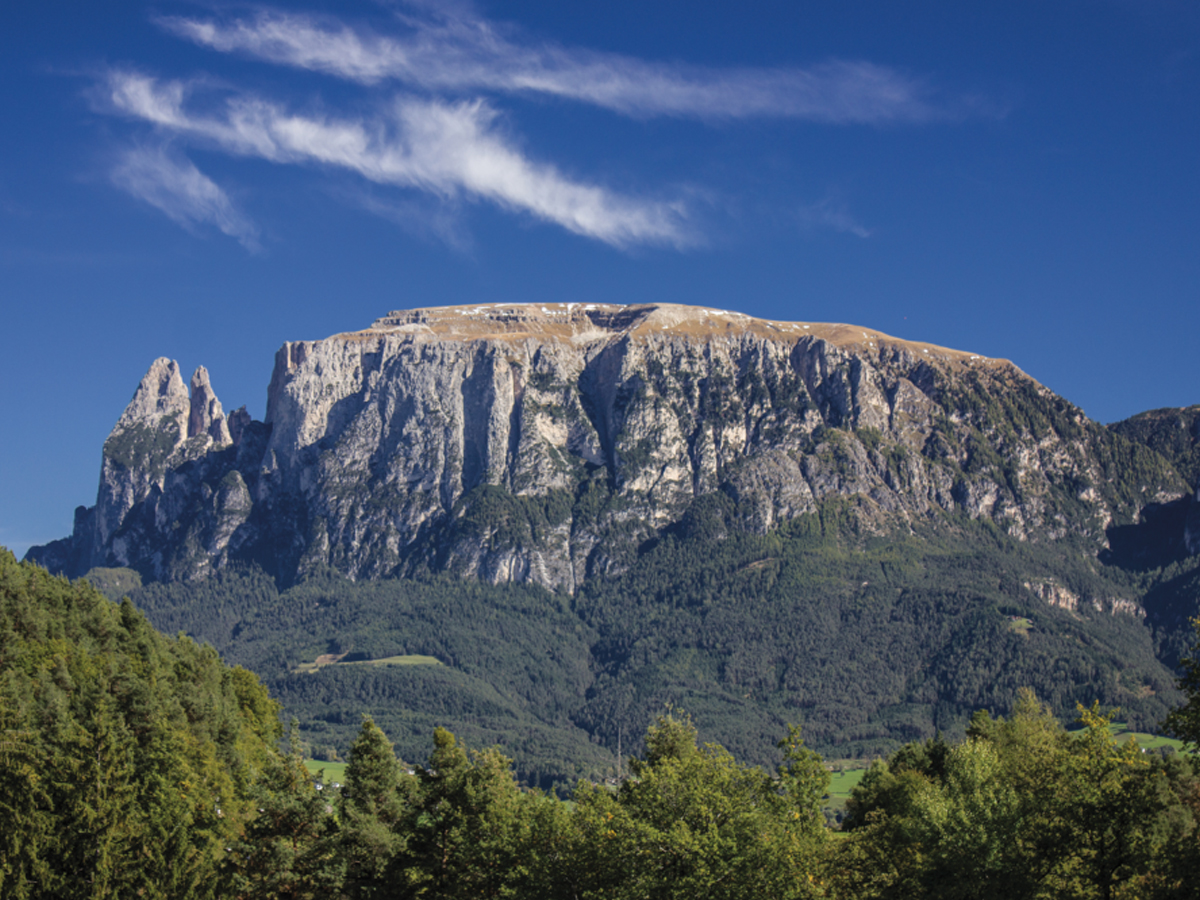
Find all the answers we have created for the questions we get asked more frequently.
Loacker has always had a special connection to the mountains, especially the Alps. Our production plants in Unterinn/Auna di Sotto (South Tyrol) and Heinfels (East Tirol) are located at 1,000 m altitude and are surrounded by a natural alpine landscape. We chose this location as the natural and untouched surroundings of our production plants play a decisive role in making outstanding products. When looking at the Alps, we associate them with the “home” of our products as well as the reason behind Loacker’s genuine quality. This unbreakable link moved us to choose one of the most impressive alpine massifs, the Sciliar, as our brand’s symbol. The representation of the Sciliar on our packaging reflects the view we see every day from our headquarters in Unterinn/Auna di Sotto. Our jolly ambassadors, the Loacker Gnometti, were inspired by the Dolomite legends. They are the messengers of all that is positive, resulting from the Dolomites’ nature.
Sustainability isa very important topic for our consumers and for us, too. We are firmly convinced that outstanding product quality, protecting the environment, adhering to social and ethical principles and economic success do not have to represent conflicting goals.
Which is why we assume our responsibilities at Loacker.
In the last years, we have achieved the following goals:
- we switched to a thinner packaging film and saved approximately 10 tons in materials.
- we reduced the use of plastic films and replaced them with cardboard. We saved 20 tons in polypropylene.
- we removed wrapping film made with cellophane on our display boxes and saved 8,586 kg wrapping film and 59,400 kg cardboard per year.
To deliver a perfect, fresh and, more than anything else, a crispy and light product to our consumers which mirrors our quality and flavor standards even after travelling across the globe, we need high-quality packaging films. They have to meet very demanding goals (humidity barrier, protection from changes in temperature, legal framework) and at the moment cannot be replaced by a greener alternative. Our packaging experts are in constant exchange with packaging producers and research institutes to change the situation. We also invest in in-house R&D projects to get closer to our common goal: a sustainable flavor for our products.
Loacker produced all its products in Unterinn/Auna di Sotto, Italy, well into the 90s. However, the production plant could no longer meet the market’s demands; moreover, we could not expand on site due to space restrictions. We looked high and low for a place that would feature the same traits found in Unterinn/Auna di Sotto: surrounded by nature, at 1,000 m altitude, with pure water and fresh air. We found those exact conditions in Heinfels, Austria, and built our second production plant there. We still produce part of our products in Italy, and the remaining in Austria. We are firmly convinced that flavor knows no borders. To guarantee smooth product traceability, we always print the individual production location on our packaging.
We take great care to ensure that no coloring, preservatives or hydrogenated fats are used in our products. We choose high quality ingredients such as Italian hazelnuts, real Bourbon vanilla, delicious cocoa, sun-ripened raspberries, fine Loacker chocolate according to our own recipes and high quality milk and fresh mountain water.
Loacker products are exported all over the world. For this reason we have introduced various certifications such as:
- ISO 9001: The standard forms the backbone of the quality management system and pursues the fulfilment of the requirements of interest groups as well as corporate and legal requirements.
- Halal: halal, in Arabic, means "the granted, the admitted, the permitted". Food products bearing this characteristic may be consumed by Muslims during their preparation, production and/or storage.
- Kosher: the word kosher, in Hebrew, means "adequate, clean, suitable". This concept of purity, however, does not only refer to the dietary rules of Judaism, but has also a spiritual and moral value.